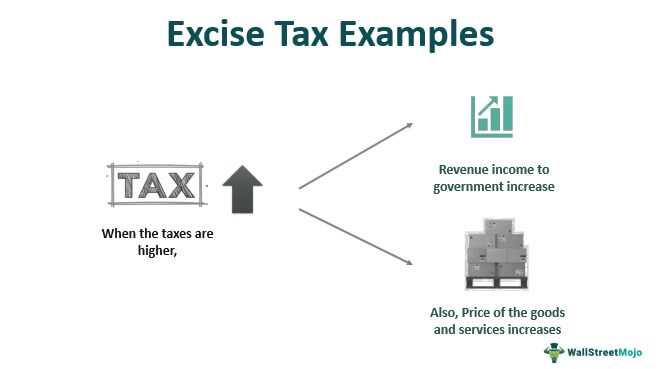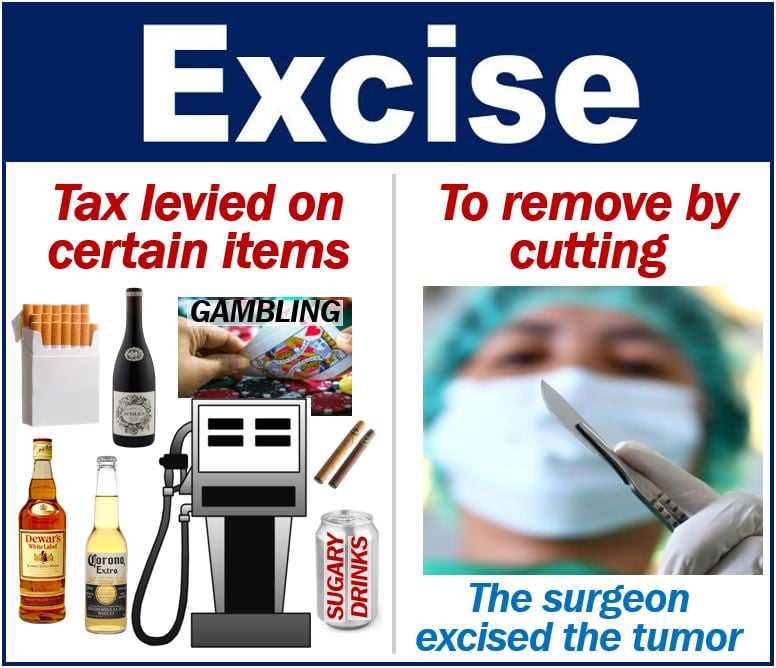What is Excise Tax?
Excise tax is a type of tax that is levied on specific goods or services, rather than on income or property. It is often referred to as a “sin tax” because it is commonly imposed on goods that are considered harmful or undesirable, such as tobacco, alcohol, and gasoline.
The purpose of excise tax is twofold. Firstly, it serves as a way for the government to generate revenue. The tax collected from the sale of excisable goods or services is used to fund various public programs and services. Secondly, excise tax is used as a regulatory tool to discourage the consumption of certain goods or services. By increasing the price of these items through taxation, the government aims to reduce their consumption and mitigate the negative social and health effects associated with them.
Types of Excise Tax
There are several types of excise tax that can be imposed on different goods and services. Some common examples include:
| Excisable Goods/Services | Examples |
|---|---|
| Alcohol | Beer, wine, spirits |
| Tobacco | Cigarettes, cigars, chewing tobacco |
| Gasoline | Motor fuel |
| Luxury goods | Jewelry, high-end vehicles |
| Environmental goods | Carbon emissions, plastic bags |
Calculation of Excise Tax

The calculation of excise tax varies depending on the specific goods or services being taxed. In most cases, excise tax is calculated based on the quantity or volume of the item being sold. For example, the excise tax on gasoline may be calculated based on the number of gallons sold, while the excise tax on cigarettes may be calculated based on the number of packs sold.
It is important to note that excise tax is typically included in the price of the goods or services and is paid by the consumer at the point of purchase. The seller is responsible for collecting the tax and remitting it to the government.
How is Excise Tax Calculated?

Excise tax is calculated based on the specific goods or services being taxed. The calculation method varies depending on the country and the type of excise tax being applied. Here are some common methods used to calculate excise tax:
- Ad Valorem: This method calculates the excise tax as a percentage of the value of the goods or services. For example, if the ad valorem rate is 10% and the value of the goods is $100, the excise tax would be $10.
- Specific: With this method, the excise tax is calculated based on a specific unit of measurement, such as quantity or weight. For example, if the specific rate is $0.50 per liter of alcohol, and you purchase 10 liters, the excise tax would be $5.
- Combined: Some countries use a combination of ad valorem and specific methods to calculate excise tax. This means that both the value and the quantity or weight of the goods are taken into account when determining the tax amount.
Real-life Examples of Excise Tax

Excise tax is a type of tax that is levied on specific goods or activities, such as alcohol, tobacco, gasoline, and luxury items. It is often included in the price of the product or service and is paid by the consumer at the point of purchase. Here are some real-life examples of excise tax:
1. Alcohol: Excise tax is commonly imposed on alcoholic beverages, including beer, wine, and spirits. The tax rate varies depending on the type and alcohol content of the product. For example, in the United States, the excise tax on beer is $0.58 per gallon, while the tax on distilled spirits is $13.50 per proof gallon.
2. Tobacco: Excise tax is also applied to tobacco products, such as cigarettes, cigars, and smokeless tobacco. The tax rate is typically based on the quantity or weight of the product. In the United States, the federal excise tax on cigarettes is $1.01 per pack, while some states impose additional taxes at the state level.
3. Gasoline: Excise tax is levied on gasoline and other motor fuels to fund transportation infrastructure and maintenance. The tax rate varies by country and state. For example, in the United States, the federal excise tax on gasoline is $0.184 per gallon, and additional state taxes range from a few cents to over 50 cents per gallon.
4. Luxury Items: Excise tax can also be imposed on luxury items, such as high-end cars, yachts, and private jets. These taxes are often referred to as “sin taxes” or “luxury taxes” and are intended to discourage excessive consumption. The tax rates for luxury items can be substantial, depending on the value or price of the item.
It is important to note that excise tax rates and regulations can vary significantly between countries and even within different regions or states. The revenue generated from excise taxes is often used to fund specific government programs or initiatives related to the taxed goods or activities.

Emily Bibb simplifies finance through bestselling books and articles, bridging complex concepts for everyday understanding. Engaging audiences via social media, she shares insights for financial success. Active in seminars and philanthropy, Bibb aims to create a more financially informed society, driven by her passion for empowering others.
